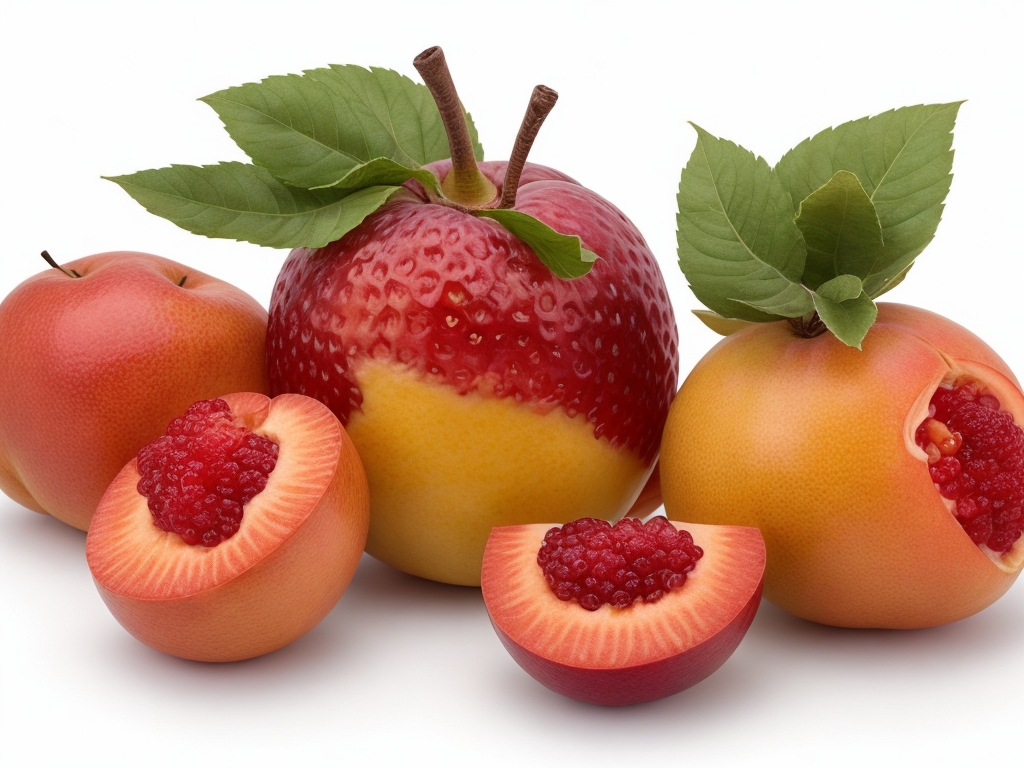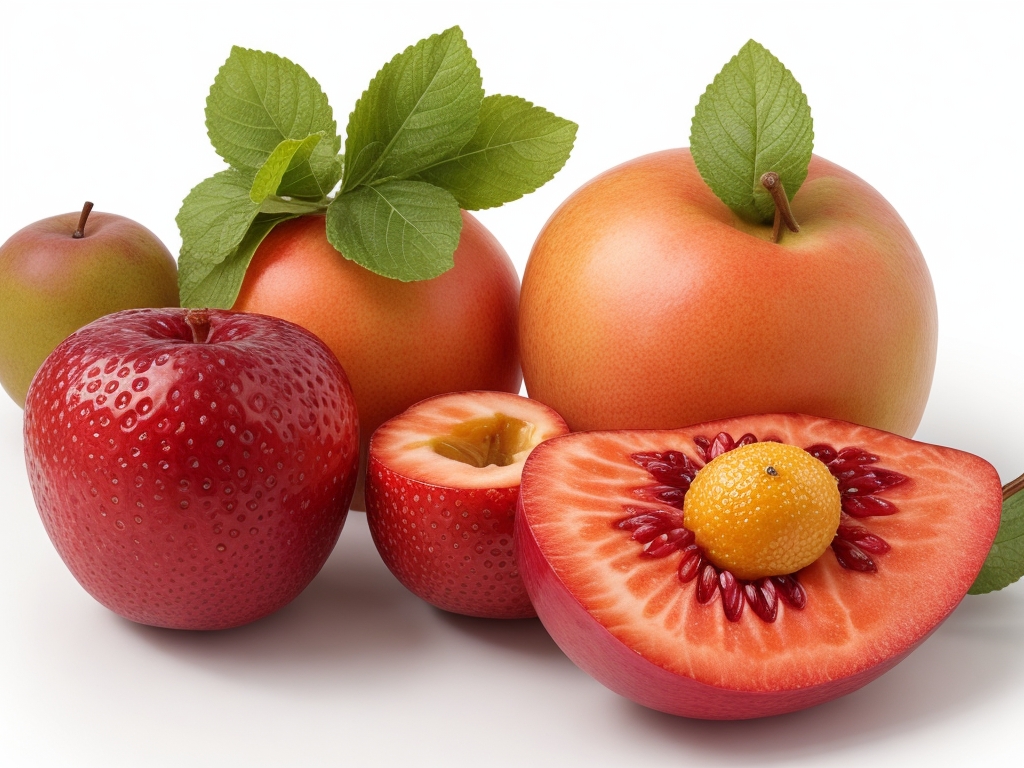Welcome to the fascinating world of pomology! In this article, we will take a closer look at the field of pomology and what it entails. You will learn about the study of fruits, including their cultivation, breeding, and research. From the history of pomology to the latest advancements in fruit production, this article will provide you with a comprehensive understanding of this unique discipline.
In the first paragraph, we will delve into the origins of pomology. You will discover how ancient civilizations, such as the Greeks and Romans, contributed to the development of pomology as we know it today. Additionally, we will explore the importance of pomology in agriculture and its role in ensuring the availability of diverse, high-quality fruit varieties. In the second paragraph, we will dive into the various aspects of pomology, including fruit tree physiology, orchard management, and post-harvest practices. You will gain insights into the techniques used to improve fruit quality, increase yields, and develop disease-resistant varieties. Whether you have a passion for horticulture or simply love enjoying the juicy fruits of nature, exploring the world of pomology will leave you with a deeper appreciation for the art and science behind fruit production.

Exploring the World of Pomology
Pomology is a fascinating field of study that focuses on the cultivation and study of fruit crops. In this article, we will delve into the various aspects of pomology, including its definition, importance in agriculture, historical background, different types of fruits, methods of fruit cultivation, nutritional value, harvesting and post-harvest techniques, its impact on the economy, research and advancements, environmental sustainability, and unique fruits from around the world. By the end of this article, you will gain a comprehensive understanding of the world of pomology and its significance in our lives.
Definition of Pomology
Pomology can be defined as the science and practice of growing and studying fruit crops. It involves understanding the biology, cultivation, and management of fruit trees and shrubs, as well as the quality and nutrition of the fruits they produce. Pomologists are researchers, educators, and advisors who work towards improving fruit production, developing new varieties, and solving challenges faced by fruit growers. Their expertise and knowledge contribute significantly to the success and sustainability of the fruit industry.
Importance of Pomology in Agriculture
Pomology plays a crucial role in agriculture, contributing to food security, economic growth, and environmental sustainability. Fruits are an essential part of a healthy diet, providing essential vitamins, minerals, antioxidants, and fiber. By studying the growth and development of fruit crops, pomologists can optimize cultivation practices, improve crop yields, and ensure the production of high-quality fruits for consumption.
Furthermore, fruit production forms a significant sector of the agricultural economy. Commercial fruit production creates job opportunities, generates income for farmers, and contributes to the overall economy. With the increasing demand for fruits globally, pomology becomes more critical in meeting the market demands and ensuring a sustainable supply of nutritious food.
Historical Background of Pomology
The history of pomology dates back thousands of years, with evidence of fruit cultivation found in ancient civilizations like Egypt, Greece, and Rome. Early pomologists observed the growth habits and characteristics of fruit trees, developing techniques for propagating and caring for them. In the 18th and 19th centuries, pomology gained prominence with the establishment of research institutions and the introduction of new fruit varieties through breeding programs.
During the Green Revolution, pomology saw significant advancements in fruit cultivation. Hybridization and the development of disease-resistant varieties revolutionized fruit production, leading to increased yields and improved quality. Today, pomologists continue to build upon these foundations, utilizing modern techniques and technologies to further enhance fruit production and meet the evolving needs of the industry and consumers.
Different Types of Fruits
Fruits are incredibly diverse, with a wide range of flavors, textures, and nutritional profiles. They can be classified into several categories based on their characteristics. The following are some of the main types of fruits studied in pomology:
Pome Fruits
Pome fruits belong to the Rosaceae family and are characterized by a central, seed-containing core surrounded by a fleshy layer. Examples of pome fruits include apples, pears, and quinces. These fruits are popular worldwide due to their crisp texture, sweet or tart flavors, and versatility in various dishes.
Stone Fruits
Stone fruits, also known as drupes, belong to the Rosaceae family as well. They have a hard, stony pit enclosing a single seed, surrounded by a fleshy outer layer. Some common examples of stone fruits are peaches, plums, cherries, and apricots. Stone fruits are known for their juicy, sweet flavors and are often enjoyed fresh or used in desserts and preserves.
Citrus Fruits
Citrus fruits are members of the Rutaceae family and are cherished for their refreshing flavors and high vitamin C content. Oranges, lemons, grapefruits, and tangerines are some well-known citrus fruits. They are widely cultivated in temperate and tropical regions, and their juices, peels, and segments are used in a variety of culinary applications and beverages.
Tropical Fruits
Tropical fruits are native to warm regions and are loved for their vibrant colors, exotic flavors, and unique textures. Examples of tropical fruits include mangoes, bananas, pineapples, papayas, and guavas. These fruits are not only delicious but also rich in essential vitamins and minerals, making them an integral part of many tropical cuisines.
Berry Fruits
Berry fruits are characterized by their small size, juicy flesh, and numerous seeds. They belong to various plant families, including Rosaceae, Solanaceae, and Ericaceae. Examples of berries include strawberries, raspberries, blueberries, blackberries, and grapes. They are packed with antioxidants, fiber, and other beneficial compounds, making them a healthy and flavorful addition to meals and snacks.
Methods of Fruit Cultivation
Successful fruit cultivation involves various techniques and practices that pomologists study and recommend to ensure optimal growth, high yields, and the prevention of pests and diseases. Here are some key methods used in pomology:
Selection of Fruit Varieties
Choosing the right fruit varieties suited to the climate, soil conditions, and market demands is crucial for successful fruit cultivation. Pomologists evaluate various factors, such as disease resistance, fruit quality, yield potential, and adaptability, when selecting fruit varieties. This ensures that growers can maximize their productivity and produce fruits that meet consumer preferences.
Propagation Techniques in Pomology
Propagation is the process of reproducing fruit plants to create new individuals. Pomologists employ several techniques, including grafting, budding, layering, and seed propagation, to propagate fruit trees and shrubs. Each technique has its advantages and is used depending on the specific requirements of the fruit species and the desired outcomes.
Growing Conditions and Requirements
Different fruit crops have different growing requirements, and pomologists provide recommendations on soil preparation, irrigation, fertilization, and pest control. They study the environmental conditions that promote fruit growth and development, such as temperature, humidity, and sunlight exposure. By optimizing the growing conditions, pomologists help growers achieve maximum yields and high-quality fruits.
Pest and Disease Management
Pests and diseases can significantly impact fruit production, leading to reduced yields and quality. Pomologists research and develop integrated pest management strategies to minimize the use of chemical pesticides and employ sustainable practices. They study the life cycles and behaviors of pests and diseases, develop monitoring systems, and recommend preventive measures and biological control methods to mitigate their impact.
Pruning and Training Techniques
Proper pruning and training techniques are essential for maintaining the health, shape, and productivity of fruit trees. Pomologists study the growth patterns of different fruit species and recommend pruning methods that promote airflow, sunlight penetration, and fruit development. Training techniques, such as espaliering and trellising, are employed to manage the growth and support the structure of fruit trees.
Nutritional Value of Fruits
Fruits are not only delicious but also highly nutritious, making them an integral part of a healthy diet. They are rich in vitamins, minerals, fiber, antioxidants, and phytochemicals that play significant roles in maintaining overall health and preventing chronic diseases. Pomology focuses on studying the nutritional value of fruits and their potential health benefits.
Role of Fruits in a Healthy Diet
Incorporating fruits into your daily diet provides essential nutrients and contributes to overall well-being. Fruits are low in calories and high in fiber, which aids in digestion and promotes satiety. They also contain natural sugars that provide a quick source of energy. Additionally, the wide variety of flavors and textures in fruits makes them a delectable addition to any meal or snack.
Vitamins and Minerals in Fruits
Fruits are packed with vitamins and minerals vital for various bodily functions. Vitamin C, found abundantly in citrus fruits and berries, boosts the immune system and supports collagen formation. Bananas are rich in potassium, which is essential for regulating blood pressure and heart health. Other fruits like oranges, mangoes, and apricots provide a good source of vitamin A, contributing to healthy eyesight and skin.
Antioxidants and Phytochemicals
Fruits contain numerous antioxidants and phytochemicals, which help fight oxidative stress and protect against chronic diseases. Blueberries, for example, are rich in anthocyanins, which have been linked to improved brain function and reduced risk of heart disease. Apples contain quercetin, a compound with anti-inflammatory properties that may help reduce the risk of certain cancers.

Harvesting and Post-Harvest Techniques
The timing and techniques used during fruit harvesting and post-harvest handling greatly influence the quality and shelf life of the fruits. Pomologists study the physiological changes that occur as fruits mature and devise methods to determine optimal harvest times. They also develop techniques for handling, storing, and preserving fruits to maintain their flavor, texture, and nutritional value.
Determining Fruit Maturity
Pomologists employ various methods to determine the maturity of fruits, ensuring they are harvested at their peak flavor and nutritional content. They assess external factors like color, size, and firmness, as well as internal factors such as soluble solids content, acidity levels, and starch conversion. By accurately determining fruit maturity, pomologists help farmers optimize harvest times and deliver high-quality fruits to consumers.
Proper Harvesting Practices
Pomologists provide guidelines for proper fruit harvesting techniques to prevent damage and ensure the longevity of the fruits. Factors such as temperature, humidity, and handling methods are considered to minimize bruising, rot, and other forms of damage. Proper harvesting practices not only maintain fruit quality but also reduce post-harvest losses and improve marketability.
Storage and Preservation Methods
Storage and preservation methods are crucial for maintaining fruit quality and extending their shelf life. Techniques such as cold storage, controlled atmosphere storage, and modified atmosphere packaging are employed to slow down the ripening process, reduce moisture loss, and inhibit microbial growth. Pomologists study the effects of these methods on different fruit species and recommend optimal storage conditions to preserve fruit quality for longer periods.
Quality Control and Grading
Pomologists play a significant role in ensuring the quality and consistency of fruits in the market. They develop grading systems based on size, color, weight, and other factors to classify fruits according to their characteristics. Through quality control measures, pomologists help maintain consumer confidence and prevent the distribution of subpar fruits, ensuring that only the best fruits reach market shelves.
Impact of Pomology on the Economy
Pomology has a considerable impact on the economy, benefiting both fruit growers and consumers. Let’s explore some of the ways in which pomology influences the economy:
Commercial Fruit Production
Commercial fruit production generates significant revenue and provides livelihoods for farmers, laborers, and allied industries. Pomologists contribute to the success of commercial orchards by guiding farmers in choosing the right fruit varieties, implementing best practices in cultivation, and managing pest and disease outbreaks. Their research and expertise ensure that fruit growers can maximize their yields and profitability.
Job Opportunities in Pomology
Pomology offers a wide range of job opportunities, including researchers, educators, extension specialists, consultants, and technicians. These professionals work in research institutions, universities, government agencies, and the private sector. Their expertise in fruit cultivation, pest management, and post-harvest techniques helps farmers improve their practices and ensures the economic viability of the fruit industry.
Export and Import of Fruits
Many countries rely on the export and import of fruits to meet consumer demands and expand their agricultural trade. Pomologists contribute to the export industry by researching suitable fruit varieties, developing quality control measures, and providing technical assistance to farmers. Their work ensures that fruits meet international standards, enabling countries to establish lucrative trade relationships and positively impact the economy.

Research and Advancements in Pomology
Pomologists are at the forefront of research and advancements in fruit production, continuously striving to improve cultivation practices, develop disease-resistant varieties, and address emerging challenges in the industry. Here are some areas where research and advancements in pomology have made significant contributions:
Breeding and Genetic Improvement
Breeding programs aim to develop new fruit varieties with desirable traits such as improved flavor, disease resistance, and yield potential. Pomologists employ conventional breeding techniques, as well as modern molecular breeding methods, to accelerate the development of new varieties. Through these advancements, farmers can access fruit plants that are better adapted to their specific growing conditions.
Biotechnology in Pomology
Biotechnology has revolutionized the field of pomology, providing tools and techniques for genetic modification and molecular characterization of fruit crops. Pomologists utilize biotechnology to improve crop traits, enhance disease resistance, and increase nutritional content. Genetic engineering has enabled the development of genetically modified fruits, such as virus-resistant papayas and apples with delayed browning, offering solutions to challenges faced by fruit growers.
Modern Techniques in Fruit Production
Advancements in technology have greatly influenced fruit production, enabling more efficient and sustainable cultivation practices. Pomologists explore the use of precision agriculture techniques, such as remote sensing, drones, and automated irrigation systems, to optimize resource utilization and reduce environmental impact. Controlled environment agriculture, employing techniques like hydroponics and vertical farming, allows year-round production and maximizes yields in limited spaces.
Environmental Sustainability in Pomology
Pomologists recognize the importance of adopting sustainable practices to ensure the long-term viability of fruit production and minimize the impact on the environment. Here are some areas where environmental sustainability is prioritized in pomology:
Organic Fruit Farming
Organic fruit farming focuses on minimizing the use of synthetic chemicals and promoting natural processes to enhance soil health, biodiversity, and sustainable pest management. Pomologists study organic cultivation methods, such as cover cropping, crop rotation, and composting, to guide growers in adopting ecologically friendly practices. Organic fruits are increasingly in demand by consumers who prioritize health, sustainability, and environmental conservation.
Soil Conservation Practices
Soil erosion, nutrient depletion, and degradation are significant concerns in fruit cultivation. Pomologists develop soil conservation practices that aim to minimize erosion, improve soil structure, and maintain fertility. Techniques such as terracing, mulching, and contour planting help prevent soil erosion, retain moisture, and create a favorable environment for root growth. By preserving soil health, pomologists ensure the long-term sustainability of fruit production systems.
Water Management in Orchards
Water scarcity is a growing issue in many regions, necessitating efficient water management practices in orchards. Pomologists study the water requirements of different fruit crops, develop irrigation techniques that minimize water wastage, and promote water conservation strategies. Techniques like drip irrigation and precision scheduling account for the specific needs of fruit trees and reduce water usage while maintaining crop health and productivity.

Exploring Unique Fruits from Around the World
One of the fascinating aspects of pomology is the exploration of unique fruits from different regions of the world. Let’s take a virtual journey to explore some exotic fruits and learn about their origins, traditional uses, and cultural significance:
Exotic Fruits and Their Origins
Durian, originating from Southeast Asia, is known for its distinct odor and creamy texture. It is regarded as the “King of Fruits” in the region. Dragon fruit, native to Central America, is now cultivated worldwide for its vibrant colors and refreshing taste. Passion fruit, originating from South America, is cherished for its tangy flavor and is often used in beverages and desserts. These fruits represent the diversity of fruits worldwide and their unique flavors that captivate taste buds.
Traditional Uses of Unique Fruits
Many traditional cultures have long appreciated the nutritional and medicinal properties of unique fruits. For example, the acai berry from the Amazon rainforest is highly regarded for its antioxidant content and is used in traditional medicine. Baobab fruit from Africa is known for its high vitamin C content and is commonly used in traditional cooking and beverages. Indigenous communities have revered these fruits for centuries, incorporating them into their diets and cultural practices.
Cultural Significance of Local Fruits
Local fruits often hold significant cultural value and play a symbolic role in festivals, rituals, and traditional ceremonies. For instance, oranges are associated with good fortune and are prominent during Lunar New Year celebrations in many Asian countries. In India, mangoes are considered the “king of fruits” and hold a special place in religious and cultural traditions. The cultural significance of local fruits reinforces the connection between people, nature, and their shared heritage.
Conclusion
Pomology occupies a vital position in agriculture, encompassing the study and cultivation of fruit crops. From its historical origins to the modern advancements in research and sustainability, pomology informs and guides fruit growers in producing high-quality fruits that nourish our bodies and support economic growth. By exploring the diverse types of fruits, understanding their nutritional value, and implementing effective cultivation and post-harvest practices, pomologists and fruit growers contribute to the well-being of individuals, communities, and the global economy. As we continue to explore the world of pomology, we can look forward to future advancements and challenges in this ever-evolving field.

Hi, I’m King Phils, a Dragon Fruit enthusiast and blogger. Welcome to my website, where I share everything I know and love about this amazing fruit.